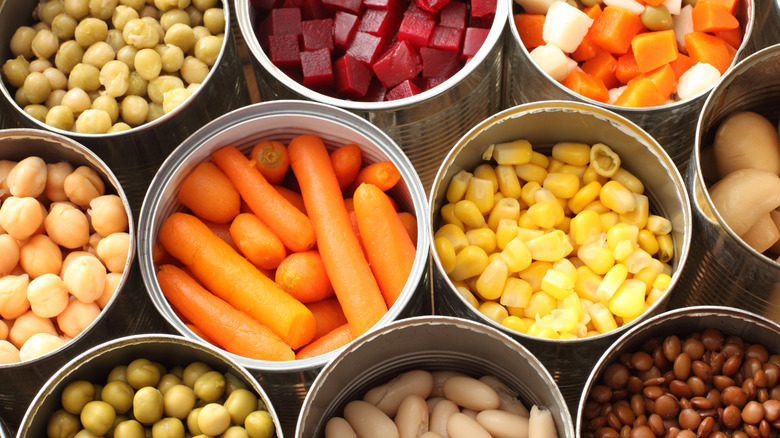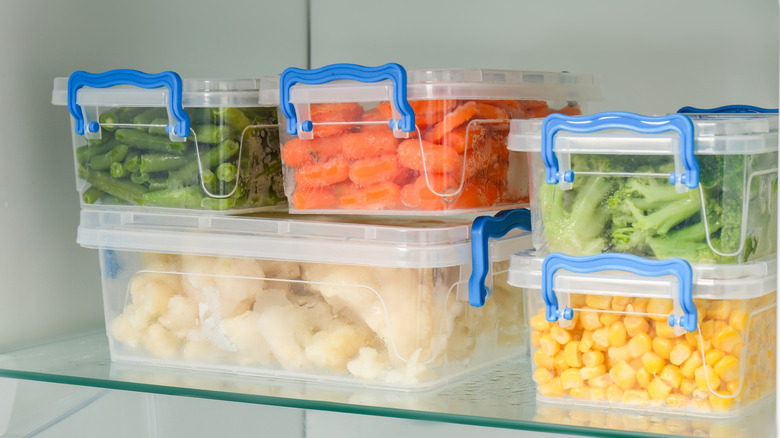How To Store Opened Canned Vegetables So They Last Longer
In the past, we've shared tips for properly storing canned goods — mostly focused on where to put cans before you open them. We've also written about why it's a bad idea to keep leftovers in the original can, since an opened can doesn't seal tightly enough to protect your food. However, with some canned vegetables, you simply won't use the whole container in a single meal. So what's the best way to save the rest until you need them? Transfer your leftover canned vegetables to food-safe containers and put them in the fridge.
For peak freshness and flavor, choose containers with a good seal. This locks the food away from air and moisture to prevent bacteria, mold, and yeast from creating unpleasant surprises like discoloration, smells, or fuzzy textures when you lift the lid. It also keeps the vegetables from drying out or absorbing odors from other foods around them — like those chopped onions in the next dish. Properly stored, beans, corn, peas, and other low-acid veggies should last for three to four days in the fridge, while high-acid foods like tomatoes, sauerkraut, and vegetables canned in vinegar will last up to a week. If you need longer storage, you can also freeze them for up to a year, defrosting them slowly in the fridge or cooking them right away.
The ins and outs of food containers
If you're stocking up on food storage containers, either glass or plastic can be a good choice. Glass won't absorb smells or stains, and it can be used in the microwave if you want to warm up your leftovers later. It's also crystal-clear so you can see what's inside the dish. On the other hand, plastic containers often seal tighter, and they won't break if you happen to drop them. Their downsides are that they can retain scents, get stained by some foods, and leach chemicals into food if heated.
Despite your best intentions, there may be times when you hurriedly toss a half-empty can of veggies into the fridge and wonder if they're still safe to consume. The short answer is, they should be. The metal itself won't pose any risks to your food, since the FDA regulates all packaging materials, including food-grade steel and aluminum, to protect consumers. And while many cans were once lined with a plastic material known as BPA, 98% of U.S. food can production now uses other lining materials that are considered safer. In conclusion, go ahead and buy those giant-sized veggie cans, but pick up some more storage containers while you're at it.

